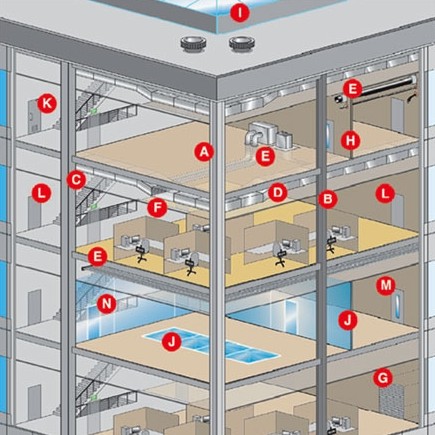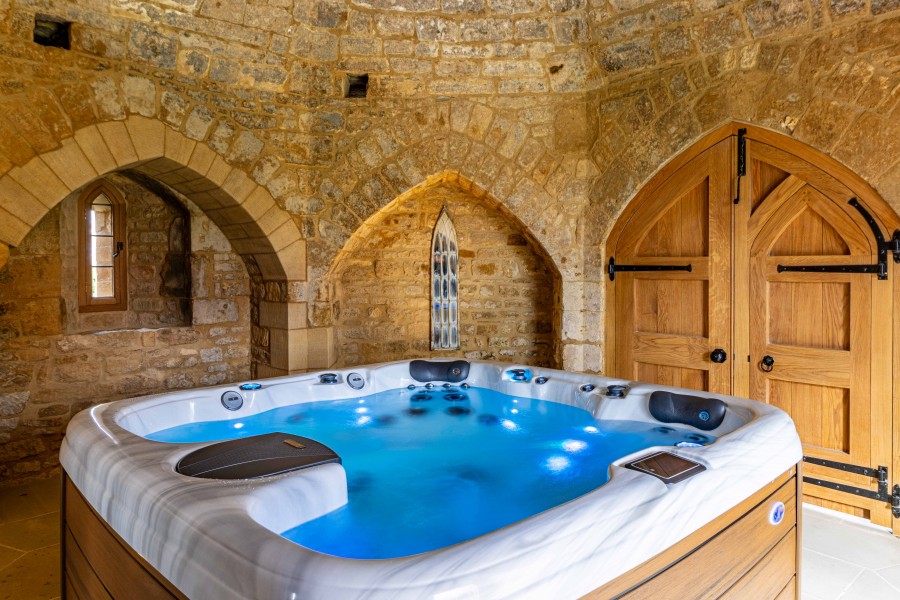
The Passive Fire Protection Federation (PFPF) is to launch a new campaign aimed at improving fire safety enforcement and compliance, in response to what it sees as a general lack of respect for fire safety regulations and regulatory guidance.
While welcoming the risk-based approach to fire safety and recognising that the building regulations are ‘fit-for-purpose, robust and pragmatic’, PFPF Chairman Mike Wood has expressed concern about low levels of compliance with fire legislation and calls on the sector as a whole to work together to secure a safer built environment.
Since the application of fire safety in practice is frequently dependent on those outside the fire safety sector – non-specialists who do not have a sufficient grounding in fire safety technicalities – Mr Wood suggests that fire safety is often viewed as an unwelcome cost, rather than a benefit.
“Fire safety is too often seen as a constraint in design, limiting flexibility, adding cost and preventing the full expression of other cherished design niceties,” he declares.
“One of the most dominant trends is to take short cuts in fire safety – to minimise, downgrade, perhaps eliminate – in the expectation that bad practice will not be detected and exposed.”
He explains that the fire safety industry often has to fight for consideration to be given to quite basic fire safety principles, such as elements of design, specification, product selection, product use, construction processes and installation.
“Incorrect assumptions may be made on product performance, derived from weaknesses in knowledge of materials, linked with lack of interest in trying to understand failure and deterioration mechanisms. This can include unwarranted substitution of one fire protection system for another when integrated holistic fire protection is needed,” he declares.
“There is no adequate technical basis for valid comparisons on an equal like-for-like basis, nor sufficient attention to the required rigours of testing and product approval. Consultation with the applicable responsible experts could readily provide the required information, yet is not pursued.”
Mr Wood warns that modern methods of construction, new forms of materials, and new engineered structures are resulting in new challenges for the sector, since many of these are not evaluated for how they might affect fire resilience in the built environment.
“Fire safety engineering as a properly constituted scientifically-based discipline certainly has a valid place in a complex built environment. But practice needs to be more transparent and exposed to peer review and constructive input from other stakeholders in the fire safety sector who do have an interest in advancing fire safety practice,” he says.
“Changes such as modular, “pod” assembly, lighter and less robust constructions, raise fundamental questions of basic resilience against fire.”
Urging all in the industry to work together through the Fire Sector Federation to address these issues, Mr Wood asserts that the fire industry as a whole has the expertise and knowledge to advance fire safety best practice. The passive industry is already working to educate the wider community. Several initiatives are under way, including the development of a national industry training scheme for passive fire protection, which aims to up-skill contractors involved in the installation of passive fire protection, as well as improve the knowledge base of those involved in the design, supply, inspection and maintenance of passive fire protection.
“The PFPF brings together the expertise of the passive fire protection industry and can offer independent advice and guidance on the, design, performance, installation and maintenance of passive fire protection products. The Federation intends to do everything in its power to spread knowledge and develop understanding, in order to change attitudes and encourage more positive fire safety behaviour,” says Mr Wood.



















